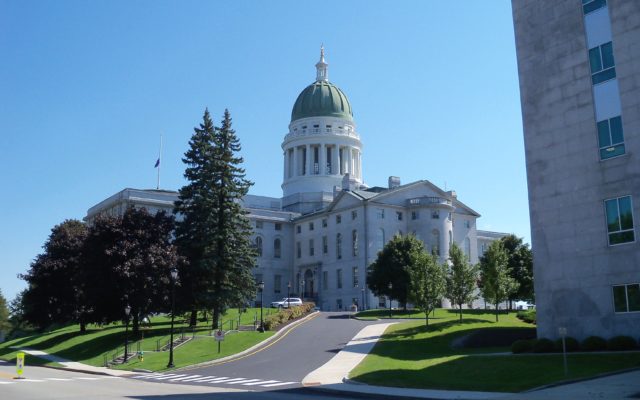
Lawmakers pass bill to limit Maine’s practice of keeping profits from home seizures
By Billy Kobin, Bangor Daily News Staff
AUGUSTA, Maine — Both chambers of the Legislature have approved a measure aimed at curtailing Maine’s practice of keeping excess proceeds from the sale of foreclosed homes in response to a U.S. Supreme Court ruling in May.
The House and Senate voted on Monday and Tuesday, respectively, to enact the bill from Rep. Chad Perkins, R-Dover-Foxcroft, and send it to Gov. Janet Mills.
Surplus proceeds from the sales of homes seized over unpaid taxes are currently only granted to former homeowners 65 years and older who are covered under Maine’s homestead exemption and below certain income and asset limits.
The amended measure that would take effect immediately will extend that process to all former homeowners, regardless of age and whether or not they had a homestead property.
Maine lawmakers moved fairly quickly to pass the bill after the Supreme Court unanimously ruled in May that Hennepin County, Minnesota, violated the Fifth Amendment by taking private property without “just compensation†when it seized a woman’s condominium over $2,300 in unpaid taxes, sold it for $40,000 and kept the proceeds.
Maine was among roughly a dozen states earlier this year with laws allowing local and county governments to keep the excess money from seized property sales, per the Pacific Legal Foundation, which represented the 94-year-old Minnesota woman before the Supreme Court.
The foundation describes those laws as “home equity theft.†From 2014 to 2021, it found 43 Maine homes were taken this way, with owners losing $167,000, or 88 percent, of their equity on average.
At least 90 days before listing the tax-acquired property for sale, municipalities must send a written notice to the last known address of the former owner of their right to seek the excess proceeds, per the bill.
If the owner seeks the surplus money, the measure requires local officials to sell the property “via quitclaim deed†at the “highest price at which the property is able to sell,†or or the price at which the property is anticipated by the real estate broker to sell within 6 months after listing.
Lastly, the bill from Perkins also creates a working group to study “equity in the property tax foreclosure process†and submit findings and recommendations by Jan. 15, 2024.
The government’s practice in Maine of keeping excess proceeds was challenged in 1974, when the Maine Supreme Judicial Court upheld the state’s foreclosure-related law. In 2018, former Gov. Paul LePage also took up the cause of an Albion couple whose home was seized over $4,000 in unpaid taxes.
Some lawmakers had reservations about advancing the bill quickly this session, particularly due to concerns the state may need more legal guidance on whether a statute of limitations exists for homeowners who previously did not obtain excess proceeds they would otherwise receive under the new law.
But the Pacific Legal Foundation and other proponents have warned states and cities may face lawsuits if they do not change policies in response to the Supreme Court decision.